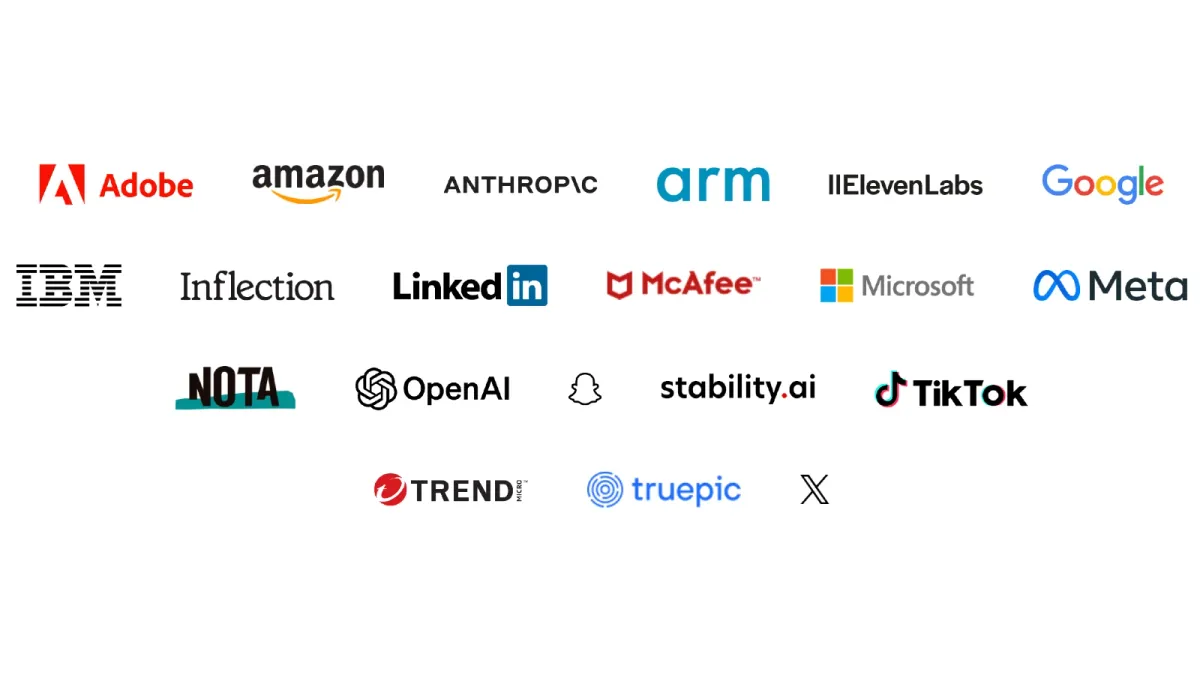
Leading tech companies, including Adobe, Amazon, Google, IBM, Meta, Microsoft, and TikTok, this week signed a Tech Accord to combat the use of deceptive AI in the upcoming 2024 elections.
Tech industry is acknowledging the potential threat of deceptive AI in elections.
This accord signifies a collaborative effort to address the potential threat of AI-generated content being used to mislead voters and undermine democracy.
The accord outlines specific commitments:
- Developing tools to detect and remove harmful AI content.
- Assessing the risks associated with AI models used for generating content.
- Fostering cross-industry cooperation to combat threats.
- Providing transparency about how companies address deceptive AI content.
- Supporting public awareness and media literacy campaigns.
This initiative comes amid growing concerns about the potential for AI to be misused in elections. Deepfakes, for example, are AI-generated videos or audio recordings that can be manipulated to make it appear as if someone is saying or doing something they never did. Such content could be used to spread misinformation, damage reputations, and sow discord.
Signatories to the accord acknowledge the importance of free speech and expression, but also emphasize the need to protect against harmful content. They believe that through collaboration and responsible development, AI can be used to strengthen democracy rather than undermine it.
The accord is seen as a step in the right direction, but some experts caution that more needs to be done. They point to the need for stronger regulations and enforcement mechanisms, as well as continued research and development on technologies to detect and counter deepfakes and other forms of deceptive AI content.
Over 4 billion people in 40+ countries will vote in 2024, prompting action against deceptive AI.
20 leading tech companies, including Adobe, Amazon, Google, IBM, Meta, Microsoft, and TikTok, signed the "Tech Accord."
The accord outlines 8 commitments: developing detection tools, assessing AI risks, fostering industry collaboration, providing transparency, promoting public awareness, and engaging with stakeholders.
Focus areas: AI-generated audio, video, and images that manipulate political figures, election officials, or voting information.
Ambassador Christopher Heusgen, MSC Chairman: "Crucial step...advancing election integrity...reigning in threats emanating from AI."
Dana Rao, Adobe: "Building infrastructure to provide context for online content...media literacy campaigns."
Brad Smith, Microsoft: "AI didn't create election deception, but we must ensure it doesn't help deception flourish."
A summary of the Tech Accord
Background:
- Over 4 billion people in 40+ countries will vote in 2024.
- AI development presents opportunities and challenges for democracies.
- Deceptive AI can manipulate voters and threaten election integrity.
Focus:
- The accord addresses "Deceptive AI Election Content": AI-generated audio, video, and images that alter candidates, officials, or voting information.
- Applies to publicly accessible platforms, open models, and large-scale social/publishing platforms.
Goals:
- Prevention: Reduce creation of deceptive AI content.
- Provenance: Identify original source of content.
- Detection: Find and flag deceptive AI content.
- Responsive Protection: Address incidents of creation and dissemination.
- Evaluation: Learn from experiences and improve.
- Public Awareness: Educate public about media literacy and Deceptive AI.
- Resilience: Develop tools and resources to protect public debate and democratic process.
Key Commitments (through 2024):
- Develop technology to mitigate risks (classifiers, watermarking, etc.).
- Assess AI models for potential misuse.
- Detect and address deceptive AI content on platforms.
- Be transparent about how companies handle the issue.
- Engage with experts and civil society.
- Support public awareness and education campaigns.
Overall:
This voluntary accord represents a collaborative effort by tech companies to address the risks of deceptive AI in elections. While limitations exist, it signals a commitment to responsible AI development and protecting democratic processes.

